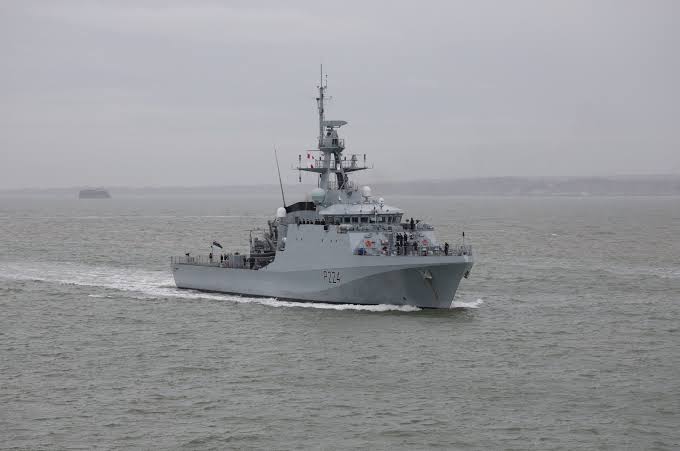Venezuela orders drills in response to British warship’s arrival in Guyana

“This is a threat from the United Kingdom to the noble and peaceful but sturdy people of Venezuela,” Maduro said in his televised New Year’s address to the National Bolivarian Armed Forces
Venezuelan President Nicolas Maduro has strongly condemned the arrival of the British Royal Navy patrol vessel HMS Trent in Guyana, ordering drills off his country’s Atlantic coast.
“This is a threat from the United Kingdom to the noble and peaceful but sturdy people of Venezuela,” Maduro said in his televised New Year’s address to the National Bolivarian Armed Forces.
According to the president, Venezuela respects an agreement with Guyana on resolving their territorial dispute “but it cannot sit idly by in the face of a threat, no matter where it comes from, and will respond proportionally.”
Maduro handed down instructions “to begin defense activities by the armed forces” in response “to the United Kingdom’s act of provocation” against Venezuela, launching drills off the country’s Atlantic coast.
“Venezuela has the right to self-defense, tranquility and peace. We don’t accept acts of provocations and threats from anyone,” Maduro stressed.
The BBC reported earlier, citing a British Defense Ministry official, that the UK would send a warship to Guyana in a show of diplomatic and military support for the former British colony.
Guyana, which used to be called British Guiana, was a British colony for 135 years until its declaration of independence in 1966.
On December 14, Venezuela and Guyana made commitments to reject the use of force in resolving the territorial dispute, keep Latin America an area of peace and prevent tensions from rising in the contested Essequibo region.
Guyana and Venezuela have been at odds over a 159,000-square-kilometer territory west of the Essequibo River for over 100 years. Tensions flared up after oil fields containing at least ten bln barrels of oil had been discovered in 2015 and Guyana provided the ExxonMobil company with a concession to explore oil in the offshore areas that had not been delimited.



